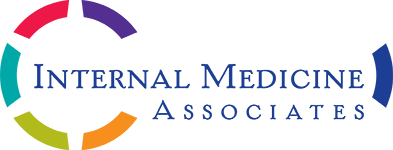- Immunization Awareness Month - August 28, 2023
August is national immunization awareness month. The CDC recognizes national immunization awareness month specifically in August to highlight the importance of routine vaccinations for all people. Healthy people 2030 focuses on preventing infectious diseases by increasing vaccination rates. There are various vaccines depending on the age group for instance infants and children’s usually get the hepatitis A, measles, pertussis and polio vaccination and in adolescence usually get the HPV vaccination. as we get older these vaccines schedule change.
At age 50, shingles vaccination is recommended specifically with Shingrix. There are a handful people who have already gotten his shingles vaccination such as the zoster live vaccine. Unfortunately, this vaccine had only shown a 10 to 20% effective rate at preventing shingles hence this promoted the advent of the Shingrix vaccination. This is a 2-dose vaccine 2 to 6 months apart which has approximately 80 to 90% effective rate at preventing shingles according to 10-year data.
New vaccines such as RSV are coming in September and October 2023. There are a couple of names for this vaccine which you may see advertised such as Abrysvo and Arexvy. RSV is a highly contagious virus that is usually seasonal and is very common to cause lower respiratory tract disease such as life-threatening pneumonia. New data since the respiratory PCR panel has been utilized more throughout hospitals in the country shows there are approximately 60,000-120,000 hospitalizations and 6,000-10,000 deaths among adults age 65 and older secondary to RSV. The vaccine has been FDA approved for individuals 60 and older and is a single dose vaccine.
At age 65, the pneumonia series vaccine is recommended for all adults. This usually starts with pneumococcal 15, and then approximately one year later, you get Prevnar 20. Pneumococcal 15 is considered your “lifelong” vaccination. Prevnar 20 is a 10-year vaccine currently.
Yearly recommended vaccinations include influenza vaccine (specifically around September/October). If you have an egg allergy, be sure to let your provider know as ovalbumin is an egg product used as a stabilizer in the flu vaccine. In 2019 / 2020, Flublok quadrivalent and Flucelvax quadrivalent vaccines were produced which were egg free. If you get your vaccine on the earlier end of the recommended season, you can get an additional vaccine in February as the flu season can extend from August/ September to March/April.
Lastly, I will discuss the new COVID-vaccine. CDC recommends getting an updated COVID vaccination approximately every 6 months currently. There is a new COVID-vaccine that is coming out in September which will be effective against the Eris variant of COVID omicron. COVID is still prevalent in the community, and we are currently seeing an increase in new COVID cases in our community. COVID continues to cause hospitalizations and can lead to death. The goal of the vaccine would be to lessen the symptoms of COVID should you develop or be exposed to this virus.
In summary, there are various vaccines for specific age groups, all of which are there to protect you. Please ask your doctor which vaccine you should get and if you are currently up to date on your vaccines.
